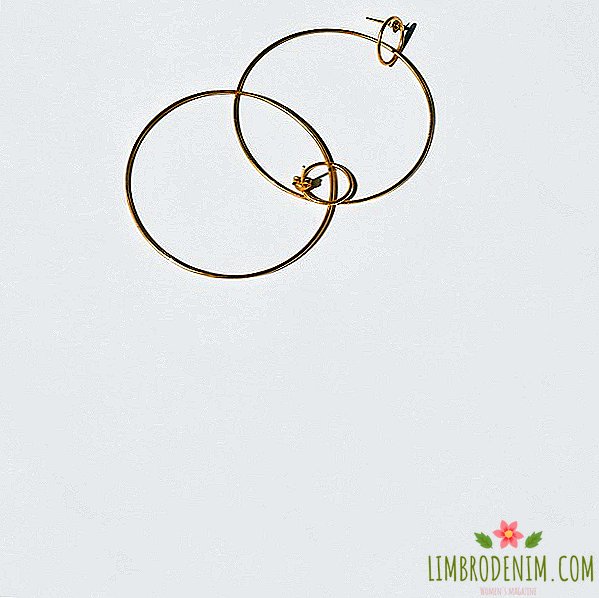Ordinary Lookism: Why is it time to stop paying so much attention to beauty

margarita virova
In some beautiful future The body-positive slogan “My body is my business” will probably become a reality - but it's not just about the importance of recognizing diversity. The world we live in today is so focused on the value of beauty and endless discussions of appearance that it destroys any other assessment of human properties. It is no secret that the division of people into beautiful and ugly beats primarily on women, but in the end, people of either sex and gender can be under pressure. Let's try to figure out why it’s so important to look good for life in society.

Sociology confirms that the culture of relationships with appearances is far from just private life. By the degree of "well-groomed" we are often evaluated by employers, the decision to stop hair removal has practically become a separate program of women's struggle, and a substantial part of its audience perceives the appearance of a full model on the cover of a democratic gloss as "obesity propaganda." Although body-positive activism has become more prominent, including in Russia, it often turns out to be a refuge for those who disagree with all their strength to fit into the framework of the norm - and still encounters active resistance from the majority. The classic work of the third wave of feminism, The Myth of Beauty, in which Naomi Wolf explores in detail how beauty has become both a real currency and a tool to contain women at the same time, did not close the topic - today they are writing more about the connection between physical attractiveness and success.
The myth of the need to take care of appearance captures not only women. In 2010, the press was surprised at the MIT survey: according to its results, voters tend to sympathize with politicians who can be called universally attractive. The New York Times in 2017 said that during the period of active public speaking, Emmanuel Macron spent a total of $ 31,000 over three months for the services of makeup artists. The fact that a pleasant face can be at least a good addition in the struggle for power is obvious. But conventional appearance can contribute to lightning-fast movements along the social ladder - which is worth only one story of the model career of the former criminal Jeremy Meeks.
Appearance has acquired too much value: it's hard to imagine a community in which people are not at all busy evaluating each other's attractiveness
In disputes about the ideals of beauty, we are often reminded that standards existed in any era, fashion and canon change, and in modern society it is considered to be derived from vigor and active lifestyle as beauty. But such arguments only increase anxiety. By the 21st century, beauty has finally gone beyond only the aesthetic category, and the expansion of rights did not save women from the obligation to be beautiful. Appearance has acquired too much meaning: it's hard to imagine any community in which people are not at all busy evaluating each other's attractiveness. And this habit, peculiar to all at once, almost automatically turns nonconformity to standards into something to which intolerance can be shown.
Like any other type of discrimination, Lookism has many forms: from domestic and seemingly innocuous discussions of "overweight" and unsuccessful hairstyles of celebrities and colleagues to cases where the general approval of the appearance is converted into serious resources. In fact, the subjective ideas about which people it is pleasant for each of us to look at and the standards of beauty on which the Lukist society stands are little connected. Studies with a large sample successfully refute biologizing assumptions that the attractiveness of symmetrical faces, feminine figures and masculine chins has an evolutionary basis - the desire to choose the most healthy partner. That is, ideas about the ideals of beauty are not connected with the natural given, which cannot be overcome.

The attitude to beauty, as well as the attitude to the diversity of sexual orientations or gender identities, is not due to the taste embedded in the subconscious. We live in a society for which a compliment is first and foremost a praise of appearance, and we grow with the collective conviction that proximity to ideal parameters immediately makes anyone a daddy of fate. A biased attitude towards those who, according to a silly, but very popular expression, “won the genetic lottery” or, on the contrary, were not born in an ideal body, deprive us of the opportunity to empathize with others.
Last year, the wrath of Russian Facebook hit #MeToo. One of the main arguments against women who spoke with stories about violence and coercion, were the accusations that show businesswomen simply skillfully used their sexuality for the sake of a career. Women only do what they use beauty and their own body to get various bonuses - this turned out to be much easier for many to accept this inverted logic than to believe in the existence of gender-based violence. In other words, a situation where beauty stands at the top of the pyramid brings not too much joy to those who fit into the standard, but would like to express themselves in something more: conventional appearance is often associated with stupidity, and the desire to look attractive is considered an invitation harassment by default.
By encouraging too much attention to beauty, we inevitably support one of the most difficult to eradicate discrimination.
In Russia, Lukism in general is actually normalized: the habit of “meeting clothes” is common at all levels, and the presidential candidates and rank-and-file officials are talking about the superiority of thin or young-looking people. And vice versa, the journalists who accused the deputy of harassment are "cute coquettes". The fresh scandal with the dismissal of Sergei Polunin from the Paris Opera, which called for "beating fat people", is indicative in this sense. We have an open Fatscheming in the statements of public figures certainly can not be the basis for exile and boycott. However, it is difficult to be surprised at this, given that more obvious types of hatred in society are perceived as the norm and manifestation of "freedom of speech". The body is an easy target for insults and uninvited criticism, and in the absence of notions of respect for personal boundaries, discrimination on the basis of appearance receives fertile soil.
At the same time, the carriers of Lukist views seem to rely on the opinion of the majority. Suffice it to recall the scandal with Aeroflot, which suddenly decided that it was unpleasant for passengers to look at full flight attendants, and deprived them of premiums and the ability to fly abroad. It seems that the management of the company simply expressed personal preferences for the wishes of customers: the majority of passengers in the world are much more important that they communicate with them politely and attentively on flights. In the conditions of rapidly changing fashion for images and styles, it is difficult to even fix the notorious standard of beauty, not only to demand its observance. Ask yourself the question: how important is it to you that the “canon” is matched by actors and actresses, news or weather news broadcasters, teachers in school or models who advertise your clothes. Or for you just decided that this is important. And now link to you without demand.
There is an opinion that a healthy society does not need either the hitting-outs of people with homosexual orientation or the liberation movement of the body positive. In other words, in an ideal world there would be neither a standard nor a struggle with it - the diversity and absence of a “sample” would be understood as an absolute given, which need not be discussed, and the right to look “different” would not be subject to any restrictions. Nobody asks to “cancel” the interest in other people's bodies and attention to one’s own, as well as private manifestations of personal enthusiasm and rejection. But to some extent beauty is overvalued, and, by encouraging too active attention to it, we inevitably support one of the most difficult to eradicate inequalities. Not to mention the fact that reducing a person to the proportions of his body greatly impoverishes our relationship with ourselves and with the world, and a narrow understanding of attractiveness successfully divides people, but very few people help to be successful and happy.
Photo: Urban Outfitters (1, 2)




